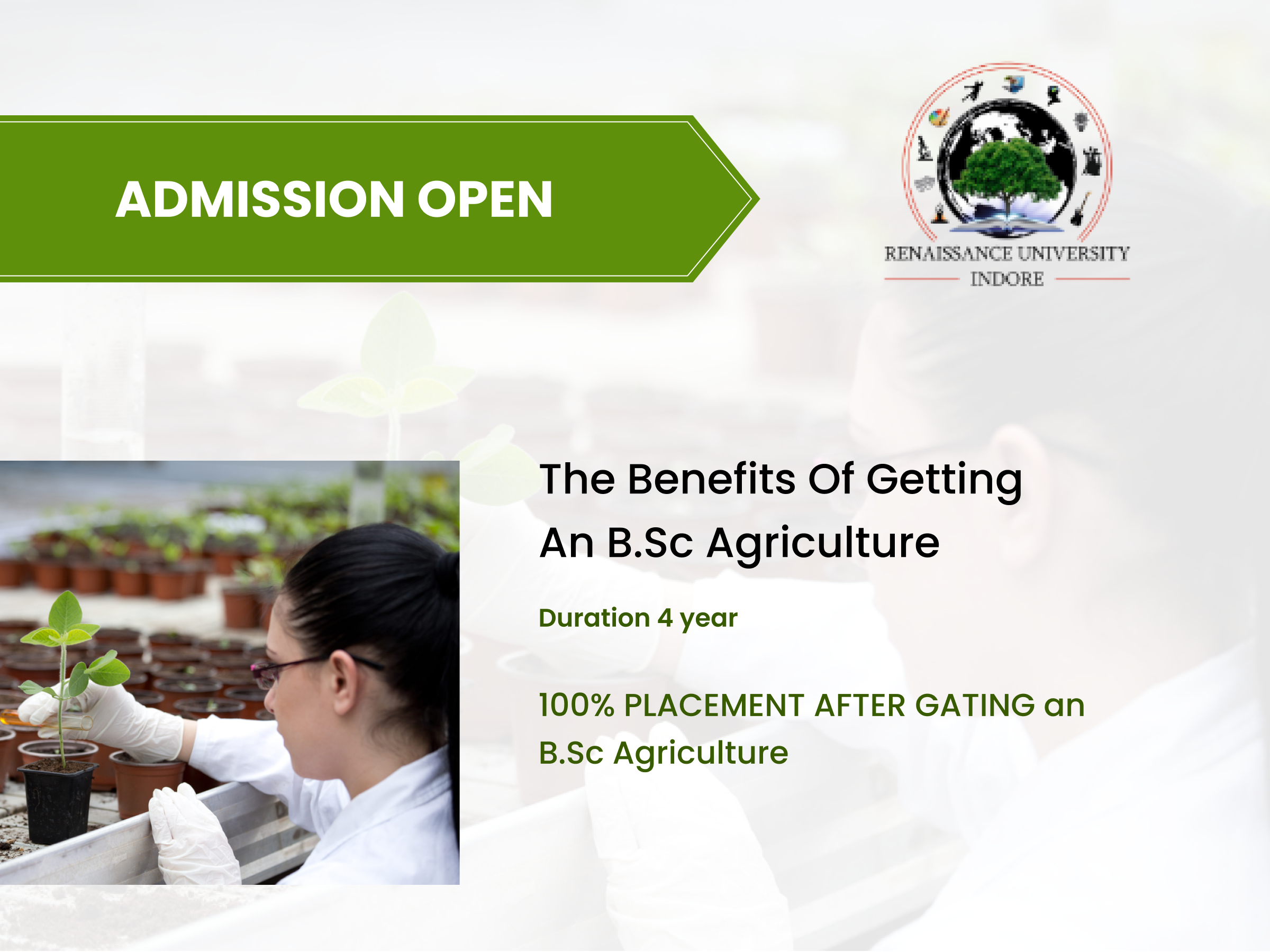MBA, or Master of Business Administration, is a postgraduate degree that equips individuals with a comprehensive understanding of business principles and management strategies. It is highly esteemed globally for its ability to cultivate leadership skills, strategic thinking, and a holistic understanding of business operations. This blog aims to provide a detailed exploration of the job opportunities after MBA graduates in India. We will delve into the various specializations, the roles and responsibilities associated with each, top companies hiring, salary trends, and growth prospects.
India boasts a robust MBA landscape with a multitude of prestigious institutions offering diverse specializations. The degree is not just a credential but a pathway to career advancement, offering a competitive edge in the dynamic and evolving business world. Before talking about job opportunities, we will know the common MBA Specializations in India. Let’s Explore
Common MBA Specializations
1. Finance
Finance is a perennially sought-after specialization, offering roles in investment banking, financial analysis, and risk management.
2. Marketing
Marketing focuses on creating, communicating, and delivering value to customers. MBA graduates in marketing find roles in brand management, market research, and digital marketing.
3. Human Resources
Human Resources (HR) specialization prepares individuals for managing personnel, recruitment, and fostering a positive workplace culture.
4. Operations
Operations management involves optimizing business processes and ensuring efficient production. Graduates may work in supply chain management, logistics, or quality control.
5. Information Technology
MBA in Information Technology combines business acumen with tech expertise, leading to roles in IT consulting, project management, and business analysis.
6. Data Analytics
Data Analytics is gaining prominence, offering opportunities in data science, business intelligence, and analytics consulting.
7. Digital Marketing
With the rise of online platforms, Digital Marketing has become a critical specialization, encompassing roles in social media marketing, content strategy, and SEO.
8. Entrepreneurship
Entrepreneurship specialization nurtures the skills needed to start and manage a business, fostering a spirit of innovation.
9. Healthcare Management
This specialized degree equips individuals with the skills and knowledge to navigate the complexities of healthcare administration and contribute to improved patient outcomes.
Jobs Opportunities After MBA Degree in India
1. Job Opportunities After MBA in Finance
MBA Finance is a specialized business degree focusing on financial management, investments, and strategic financial planning. It equips individuals with the skills needed to navigate the complex world of finance.
As businesses expand globally and financial complexities increase, there is a growing demand for professionals who can strategically manage finances and contribute to the overall success of organizations.
1. Financial Analyst
Financial analysts play a crucial role in helping organizations make informed financial decisions. They analyze market trends, evaluate financial data, and provide insights to guide strategic planning.
2. Treasury Manager
Responsible for managing an organization’s financial assets, treasury managers oversee cash flow, investments, and financial risk. Their role is vital in ensuring financial stability and liquidity.
3. Investment Banker
MBA Finance graduates often find lucrative opportunities in investment banking, where they facilitate mergers, acquisitions, and capital raising for businesses. It’s a fast-paced environment requiring strong analytical skills.
4. Portfolio Manager
Portfolio managers handle investment portfolios, making decisions to optimize returns. Their role involves assessing risk, market trends, and adjusting portfolios to align with client goals.
5. Risk Analyst
In an era of financial uncertainties, risk analysts assess potential risks and develop strategies to mitigate them. Their insights are crucial for organizations navigating volatile markets.
6. Compliance Officer
Ensuring adherence to financial regulations, compliance officers play a key role in preventing legal and ethical violations. They are integral to maintaining an organization’s reputation and integrity.
7. Financial Planner
Working closely with clients, financial planners help individuals and businesses achieve their financial goals. They create comprehensive financial plans considering investments, retirement, and estate planning.
8. Budget Analyst
Budget analysts assist organizations in managing their finances effectively by developing budgets, monitoring spending, and recommending adjustments to ensure financial health.
Roles and Responsibilities: Financial analysts, investment bankers, corporate treasurers, and risk managers are common roles for finance graduates. They are responsible for financial planning, investment analysis, and ensuring regulatory compliance.
Salary Range of MBA in Finance: Finance professionals can expect salaries ranging from INR 6-8 lakhs per annum for entry-level positions, with the potential for significant growth in senior roles.
Scope: Industries such as banking, financial services, and consulting firms are major recruiters for finance professionals, highlighting the ever-present demand in India.
Companies Hiring:
- HDFC Bank
- ICICI Bank
- Goldman Sachs,
- Deloitte
- Ernst & Young
Skills Required:
Analytical skills, financial acumen, attention to detail, and strong communication skills are crucial for success in finance roles.
2. Job Opportunities After MBA in Marketing:
MBA Marketing is a specialized business degree focusing on strategic marketing, consumer behavior, and brand management. It equips individuals with the skills needed to thrive in the ever-evolving field of marketing.
As businesses strive to capture the attention of consumers in an increasingly competitive market, the need for skilled marketing professionals has never been higher. An MBA in Marketing provides a comprehensive understanding of marketing strategies and consumer trends.
Here are the Job Opportunities After Doing MBA in Marketing
1. Brand Manager
Brand managers are responsible for developing and implementing strategies to enhance brand visibility and reputation. They collaborate with cross-functional teams to ensure brand consistency.
2. Product Marketing Specialist
Product marketing specialists focus on promoting specific products. They create compelling narratives and marketing campaigns to drive product adoption and sales.
3. Digital Marketing Manager
In the digital age, digital marketing managers oversee online marketing strategies, including SEO, social media, and email marketing, to reach target audiences effectively.
4. Social Media Strategist
Social media strategists leverage platforms like Facebook, Instagram, and Twitter to create engaging content and build brand awareness.
6. Market Research Analyst
Market research analysts gather and analyze data to help companies understand market trends, consumer preferences, and competitive landscapes.
7. Marketing Analytics Manager
Professionals in this role use data analytics to measure the effectiveness of marketing campaigns and provide insights for future strategies.
8. Sales Manager
Sales managers lead sales teams, set targets, and develop strategies to achieve revenue goals. They play a critical role in driving business growth.
9. Business Development Executive
Business development executives identify new business opportunities, build partnerships, and contribute to the expansion of the company’s market presence.
Roles and Responsibilities: Brand managers, marketing managers, digital marketing strategists, and product managers are common roles for marketing graduates. They handle market research, product launches, and brand management.
Salary Range of MBA Marketing: Marketing professionals can expect salaries from INR 5-10 lakhs per annum initially, with potential for substantial growth.
Scope: Marketing opportunities abound in FMCG, e-commerce, technology, and more. The rise of digital marketing has led to increased demand for professionals in online and social media marketing.
Companies Hiring: Top recruiters include Hindustan Unilever, Procter & Gamble, Google, and Amazon.
Skills Required: Creativity, communication skills, data analysis, market research, and a solid understanding of digital marketing trends are vital for success in marketing roles.
3. Job Opportunities After MBA in Human Resources:
Human Resources (HR) specialization in MBA focuses on developing skills related to talent management, employee relations, and organizational development. It prepares students for roles in optimizing workforce productivity.
As organizations recognize the pivotal role of human capital in achieving strategic objectives, HR professionals are in high demand. HR departments are instrumental in attracting, developing, and retaining top talent, contributing to organizational success.
Here are the Job Opportunities After Doing MBA in HR
1. Recruiter
Recruiters play a crucial role in identifying and hiring the right talent for organizations. They collaborate with hiring managers, conduct interviews, and ensure a seamless recruitment process.
2. Talent Acquisition Manager
Talent acquisition managers oversee the entire recruitment function, strategizing to attract and retain skilled professionals. They play a key role in workforce planning and talent pipeline development.
3. HR Generalist
HR generalists handle a broad range of HR functions, including employee relations, performance management, and policy implementation. They act as a bridge between employees and management.
4. Employee Relations Specialist
Specialists in employee relations focus on creating a positive work environment, addressing employee concerns, and promoting healthy relationships within the organization.
5. Training Coordinator
Training coordinators organize and facilitate training programs to enhance employee skills and development. They identify training needs and collaborate with subject matter experts.
6. Learning and Development Manager
Managers in learning and development design comprehensive training strategies, aligning them with organizational goals to foster continuous employee growth.
7. Compensation Analyst
Compensation analysts evaluate and establish competitive salary structures, ensuring that compensation aligns with industry standards and organizational goals.
8. Benefits Manager
Benefits managers design and administer employee benefit programs, considering factors like health insurance, retirement plans, and employee wellness initiatives.
Roles and Responsibilities: HR managers, HR business partners, and talent acquisition specialists are common roles for HR graduates. They handle recruitment, employee relations, and organizational development.
Salary Range of MBA in HR: HR professionals can earn initial salaries of INR 5-8 lakhs per annum, with senior positions offering higher remuneration.
Scope: With the emphasis on organizational culture and employee engagement, HR professionals are in demand across industries such as IT, healthcare, and manufacturing.
Companies Hiring: Major recruiters include Infosys, TCS, Accenture, and Wipro.
Skills Required: Interpersonal skills, conflict resolution, strategic thinking, and a deep understanding of employment laws are essential for success in HR roles.
4. Job Opportunities After MBA Operations Management:
An MBA in Operations Management focuses on the strategic planning, implementation, and optimization of business processes to achieve operational excellence. It prepares individuals to manage complex systems and drive efficiency.
In the competitive business landscape, effective operations management is crucial for delivering products and services efficiently, reducing costs, and meeting customer demands. Operations professionals contribute to overall organizational success.
Here are the Job Opportunities After Doing MBA in Operations Management
1. Supply Chain Analyst
Supply chain analysts play a pivotal role in optimizing the end-to-end supply chain process. They analyze data, identify inefficiencies, and implement strategies to enhance supply chain efficiency.
2. Operations Manager
Operations managers oversee the day-to-day operations of a business. They are responsible for ensuring that processes run smoothly, coordinating teams, and implementing improvements to enhance overall efficiency.
3. Logistics Coordinator
Logistics coordinators manage the movement of goods and services. They coordinate transportation, distribution, and storage to ensure timely delivery and cost-effective operations.
4. Inventory Control Specialist
Inventory control specialists monitor and manage inventory levels, minimizing excess and shortages. They play a crucial role in optimizing stock levels and ensuring efficient supply chain operations.
5. Quality Assurance Manager
Quality assurance managers ensure that products and services meet industry standards and customer expectations. They implement quality control processes to enhance overall product and service quality.
6. Six Sigma Consultant
Six Sigma consultants use data-driven methodologies to identify and eliminate defects or inefficiencies in processes. They play a key role in improving overall operational performance.
Roles and Responsibilities: Operations managers, supply chain analysts, and project managers are common roles for operations graduates. They are responsible for streamlining processes and improving efficiency.
Salary Range of MBA in Operations: Salaries for operations professionals typically start at around INR 6-8 lakhs per annum, with potential for growth based on experience.
Scope: Industries such as manufacturing, retail, and consulting rely heavily on operations professionals to streamline processes and enhance efficiency.
Companies Hiring: Leading companies hiring operations professionals include Tata Consultancy Services, Amazon, and Flipkart.
Skills Required: Analytical skills, project management, attention to detail, and problem-solving abilities are crucial for success in operations roles.
5. Job Opportunities After MBA in Information Technology:
Information Technology (IT) specialization in MBA focuses on developing skills in IT consulting, project management, and systems analysis. It prepares students for roles in managing and implementing technology solutions.
In today’s digital age, IT is integral to the success of businesses. From managing complex IT projects to ensuring cybersecurity and leveraging data analytics, IT professionals play a crucial role in driving business growth.
Here are the Job Opportunities After Doing MBA in Information Technology
1. Project Manager
IT project managers oversee the planning, execution, and closing of IT projects. They ensure projects are completed on time, within scope, and meet business objectives.
2. IT Consultant
IT consultants provide strategic advice on technology solutions to businesses. They analyze IT needs, recommend improvements, and help organizations implement effective IT strategies.
3. Cybersecurity Analyst
Cybersecurity analysts protect organizations from cyber threats by implementing security measures, monitoring systems, and responding to incidents to safeguard sensitive data.
4. Risk Management Specialist
Risk management specialists assess and mitigate potential risks related to IT projects and operations. They develop strategies to ensure data integrity and compliance with regulations.
5. Business Intelligence Analyst
Business intelligence analysts focus on transforming raw data into meaningful insights. They develop reports, dashboards, and visualizations to aid strategic decision-making within the organization.
6. Cloud Solutions Architect
Cloud solutions architects design and implement cloud infrastructure for businesses. They specialize in creating scalable and secure cloud environments, optimizing performance and efficiency.
7. IT Infrastructure Manager
IT infrastructure managers oversee the organization’s entire IT infrastructure, ensuring the smooth functioning of networks, servers, and systems to support daily operations.
Roles and Responsibilities: IT consultants, project managers, and systems analysts are common roles for IT graduates. They are involved in implementing technology solutions, managing IT projects, and ensuring the smooth functioning of IT systems.
Salary Range of MBA in IT: Salaries for IT professionals can range from INR 6-12 lakhs per annum, with higher salaries for experienced professionals in managerial roles.
Scope: India’s booming IT industry offers extensive opportunities for MBA graduates in roles related to software development, consulting, and IT project management.
Companies Hiring: Major recruiters include Infosys, TCS, Wipro, and Accenture.
Skills Required: Technical acumen, project management skills, problem-solving, and strong communication skills are vital for success in IT roles.
6. Job Opportunities After MBA in Data Analytics:
An MBA in Data Analytics blends business acumen with advanced data analysis skills, preparing professionals to extract valuable insights from complex datasets. It focuses on leveraging data to drive strategic decision-making within organizations.
In an era of information overload, businesses are increasingly relying on data analytics to gain a competitive edge. From identifying trends to predicting consumer behavior, data analytics is pivotal in shaping business strategies.
Here are the Job Opportunities After Doing MBA in Data Analytics
1. Machine Learning Engineer
Machine learning engineers design and implement machine learning models to automate processes and extract patterns from data, contributing to data-driven decision-making.
2. Data Analyst
Data analysts interpret and analyze data, providing actionable insights for business decision-making. They play a crucial role in transforming raw data into meaningful information.
3. Business Intelligence Developer
Business intelligence developers create tools and systems to collect, analyze, and present business data. They focus on providing accessible and understandable insights to stakeholders.
4. Data Visualization Specialist
Data visualization specialists design and develop visual representations of data, making complex information more accessible and understandable for decision-makers.
5. Data Engineer
Data engineers design, develop, and manage the architecture for data generation, transformation, and storage. They ensure that data is accessible and ready for analysis.
6. Database Administrator
Database administrators manage and optimize databases, ensuring data integrity, security, and efficient retrieval for analytical purposes.
Roles and Responsibilities: Data analysts interpret Data Scientists, and Business Intelligence Analysts. They play a pivotal role in leveraging data to inform strategic decision-making within organizations.
Salary Range of MBA Data Analytics: Entry-level data analysts can expect salaries around INR 6-10 lakhs per annum, with the potential for substantial growth as they gain experience and specialize in advanced analytics.
Scope: With the increasing emphasis on data-driven decision-making, there is a high demand for data analytics professionals across industries such as finance, healthcare, e-commerce, and manufacturing.
Companies Hiring: Top companies in the field of data analytics include IBM, Microsoft, Accenture, and several emerging startups in the analytics space.
Skills Required: Statistical analysis, programming skills (Python, R), data visualization, and problem-solving abilities are crucial for success in data analytics roles. Additionally, a keen understanding of business processes is valuable for providing meaningful insights.
7. Job Opportunities After MBA in Digital Marketing:
Digital Marketing specialization in MBA focuses on developing expertise in online marketing strategies, including search engine optimization (SEO), social media marketing, and content marketing. It prepares students for roles in the rapidly evolving digital landscape.
Digital marketing has become integral to business success, offering targeted reach, measurable outcomes, and the ability to adapt quickly to changing market trends. MBA Digital Marketing graduates are poised to lead organizations in this dynamic space.
Here are the Job Opportunities After Doing MBA in Digital Marketing
1. Content Marketing Manager
Content marketing managers oversee the creation and distribution of valuable content to attract and engage the target audience. They play a key role in building brand authority and driving customer loyalty.
2. Social Media Specialist
Social media specialists develop and implement social media strategies to enhance brand visibility and engagement. They analyze data to optimize campaigns and foster meaningful connections with the audience.
3. SEO Manager
SEO managers lead efforts to optimize website content for search engines, improving organic visibility. They stay updated on search algorithms and implement strategies to enhance website rankings.
4. SEO Analyst
SEO analysts conduct in-depth analysis of website performance, keyword research, and competitor trends. They provide insights to optimize content and improve search engine rankings.
5. Paid Media Specialist
Paid media specialists design and execute paid advertising campaigns across various channels. They analyze campaign performance, optimize budgets, and drive ROI.
6. PPC Campaign Manager
PPC campaign managers focus on creating and managing pay-per-click advertising campaigns. They optimize keywords, analyze ad performance, and ensure cost-effectiveness in paid campaigns.
Roles and Responsibilities: Digital Marketing Managers, SEO Specialists, and Social Media Managers are common roles for digital marketing graduates. They are responsible for creating and executing online marketing campaigns, increasing brand visibility, and driving customer engagement.
Salary Range of MBA in Digital Marketing: Digital marketing professionals can earn initial salaries of INR 5-8 lakhs per annum, with potential for growth based on performance and the success of digital campaigns.
Scope: With the increasing shift to online platforms, the demand for digital marketing professionals is on the rise in industries such as e-commerce, retail, and technology.
Companies Hiring: Top recruiters for digital marketing professionals include Google, Facebook, Amazon, and digital marketing agencies like WPP and Dentsu.
Skills Required: SEO knowledge, social media management, content creation, and data analysis skills are essential for success in digital marketing roles. A deep understanding of online consumer behavior and emerging trends is also beneficial.
8. Job Opportunities After MBA in Entrepreneurship:
Entrepreneurship specialization in MBA is designed for individuals aspiring to start their own businesses or work in startup environments. It focuses on developing a comprehensive skill set to navigate the challenges of entrepreneurship.
Entrepreneurship goes beyond starting businesses; it’s about cultivating an entrepreneurial mindset that embraces risk-taking, innovation, and adaptability. MBA Entrepreneurship graduates are prepared to lead in dynamic and uncertain business environments.
Here are the Job Opportunities After Doing MBA in Entrepreneurship
1. Startup Founder
Startup founders conceptualize, launch, and lead startups. They are visionaries who identify market gaps, develop innovative solutions, and build teams to bring their ideas to life.
2. Entrepreneur-in-Residence
Entrepreneurs-in-Residence (EIRs) work with venture capital firms or startup incubators, bringing their expertise to help evaluate and develop new business opportunities.
3. Small Business Owner
Small business owners manage and operate their enterprises, whether it’s a local restaurant, retail store, or service-based business. They wear multiple hats, overseeing day-to-day operations and strategic growth.
4. Franchise Owner
Franchise owners purchase the rights to operate a business under an established brand. They benefit from the brand’s reputation and support while managing their local franchise.
5. Intrapreneur
Intrapreneurs work within large organizations, applying entrepreneurial principles to drive innovation and create new products or services. They act as internal entrepreneurs, navigating corporate landscapes with an entrepreneurial spirit.
6. Innovation Manager
Innovation managers focus on fostering creativity within organizations. They lead initiatives to develop and implement new ideas, products, or processes to maintain a competitive edge.
Roles and Responsibilities: Entrepreneurs wear multiple hats, including business planning, fundraising, team management, and strategic decision-making. Their responsibilities evolve as they navigate the various stages of a startup, from ideation to scaling.
Salary Range After MBA in Entrepreneurs: Entrepreneurial income varies significantly, and it’s typically tied to the success of the venture. While initial years may be financially challenging, successful entrepreneurs can achieve substantial rewards, including equity and profits.
Scope: India’s startup ecosystem is vibrant, offering ample opportunities for entrepreneurs to create innovative solutions and disrupt traditional industries. This specialization equips individuals to identify market gaps and build scalable businesses.
Companies Hiring: Entrepreneurs often establish their ventures. However, they may collaborate with investors, accelerators, and incubators. Platforms like AngelList and Y Combinator connect entrepreneurs with potential investors and mentors.
Skills Required: Entrepreneurial spirit, strategic thinking, risk-taking ability, and strong leadership skills are essential for success in entrepreneurship. Additionally, skills in fundraising, networking, and adapting to dynamic market conditions contribute to entrepreneurial success.
9. Job Opportunities After MBA in Healthcare Management:
Healthcare Management specialization in MBA focuses on preparing students to navigate the complex healthcare industry. It covers aspects of healthcare policy, administration, and strategic management.
As the healthcare industry undergoes rapid transformations, the need for skilled healthcare managers is more crucial than ever. MBA Healthcare Management graduates play a pivotal role in ensuring the smooth operation of healthcare facilities and improving overall healthcare delivery.
Here are the Job Opportunities After Doing MBA in Healthcare Management
1. Hospital Administrator
Hospital administrators oversee the day-to-day operations of healthcare facilities. They manage budgets, implement policies, and collaborate with medical professionals to ensure quality patient care.
2. Healthcare Operations Manager
Healthcare operations managers focus on optimizing processes within healthcare organizations. They streamline workflows, implement efficiency measures, and ensure resources are used effectively.
3. Healthcare Consultant
Healthcare consultants provide strategic advice to healthcare organizations. They analyze operational processes, recommend improvements, and assist in the implementation of efficient healthcare delivery models.
4. Quality Improvement Manager
Quality improvement managers focus on enhancing the quality of healthcare services. They develop and implement strategies to monitor and improve patient outcomes, safety, and overall healthcare quality.
5. Pharmaceutical Product Manager
Pharmaceutical product managers oversee the development, marketing, and sales of pharmaceutical products. They collaborate with research and development teams to bring new medications to market.
6. Regulatory Affairs Manager
Regulatory affairs managers ensure pharmaceutical products comply with government regulations. They navigate the complex landscape of healthcare regulations to facilitate product approvals and compliance.
Roles and Responsibilities: Healthcare managers, hospital administrators, and healthcare consultants are common roles for healthcare management graduates. They are responsible for ensuring the efficient delivery of healthcare services, managing healthcare facilities, and implementing healthcare policies.
Salary Range of MBA in Healthcare Management: Salaries for healthcare management professionals vary based on the specific role and the level of responsibility. Entry-level positions may start at around INR 6-8 lakhs per annum, with potential for growth in managerial roles.
Scope: With the evolving healthcare landscape in India, there is a growing demand for professionals who can navigate the challenges of healthcare administration. Opportunities exist in hospitals, clinics, pharmaceutical companies, and healthcare consulting firms.
Companies Hiring: Top recruiters include Apollo Hospitals, Fortis Healthcare, Max Healthcare, and various healthcare consulting firms.
Skills Required: Understanding of healthcare policies, strategic management, interpersonal skills, and adaptability to the dynamic healthcare environment are essential for success in healthcare management roles.
In conclusion, an MBA in India offers a diverse array of specializations, each presenting unique career paths and opportunities. Whether one chooses a traditional field like finance or explores emerging areas such as data analytics or entrepreneurship, the key lies in aligning skills and passion with the dynamic needs of the Indian job market. As industries evolve, MBA graduates are well-positioned to contribute meaningfully to the growth and innovation of diverse sectors in the Indian economy.










